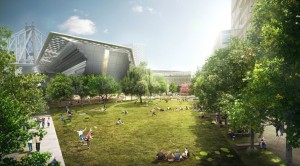
In the article, Scholl and Guwaldi focus on how American campuses are changing their landscapes to provide a more holistic learning environment to meet the needs of today’s college student.The article makes the claim that students who are enrolled at an open spaced campus tend to have a better learning experience compared to those in closed space campuses. Today’s universities are expected to look different compared to other places and have better resources such as technology and more open spaces. The college experience is considered stressful and demanding and features such as a well -designed campus and connection of indoor and outdoor spaces influence student learning by refreshing functioning for attention drained students.
Scholl and Guwaldi go on to give a historical overview of traditional campuses,which we were located in rural areas and were secluded to ensure students were not distracted and devoted unlimited time to learning.In order to add quality to the campus environment and provide environmental benefits (such as limiting global warming),universities decided to integrate open spaces into green sections of the campus. In today’s age,college students get distracted and turn to their cellular devices,this allows them to text and be on Snapchat, Twitter, Facebook or other social media sites.However, the authors believe being outside helps them interact better with people,and focus more on their surroundings.
Scholl and Guwaldi believe that nature integration improves the attention span of students,study breaks taken within natural like settings help restore attention, and prepare the the student for the upcoming class.This in turn not only provides academic benefits but gives students a sense of community.Traditional campus indoor spaces provide the structured learning experience, however in order to create a dynamic learning environment,strengthen direct attention of students and encourage social interaction, a natural outdoor setting must be included in infrastructure as well.
Source: Recognizing Campus Landscapes as Learning Spaces Article